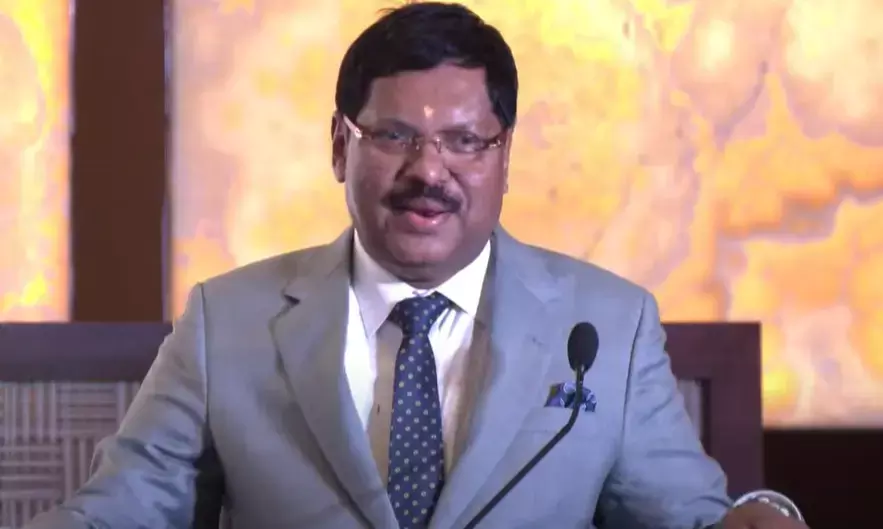Constitution A 'Quiet Revolution Etched In Ink': CJI BR Gavai At Oxford Union

Chief Justice of India (CJI) B R Gavai, speaking at the prestigious Oxford Union, described the Indian Constitution as a “quiet revolution etched in ink”, a transformative force that not only guarantees rights but actively uplifts the historically marginalised.
Delivering an address on the theme “From Representation to Realisation: Embodying the Constitution's Promise”, CJI Gavai, the second Dalit and first Buddhist to hold India’s top judicial post, highlighted the Constitution’s deep social impact on disadvantaged communities, drawing from his own life journey.
“Many decades ago, millions of citizens were called ‘untouchables’… Today, someone from those very communities stands before you as the Chief Justice of India,” he said, calling the Constitution a “lifeline” for India’s most vulnerable citizens.
He emphasised that the Constitution is not merely a legal or political framework but a social and moral document drafted amid entrenched inequality. “It dares to intervene, to recalibrate power, and to restore dignity,” he said, noting the inclusive nature of the Constituent Assembly that comprised Dalits, Adivasis, women, religious minorities, and persons with disabilities.
Citing Dr. B R Ambedkar, the architect of the Constitution, CJI Gavai stressed that democracy cannot survive without social democracy. “Representation was not just about political power between institutions, but among social groups long denied a voice,” he noted.
Touching upon India’s evolving affirmative action jurisprudence, he cited the Mandal judgment, the 2014 NALSA ruling on transgender rights, the 2020 judgment granting permanent commissions to women in the armed forces, and decisions recognizing the need for reasonable accommodations for persons with disabilities.
He also highlighted the 2023 constitutional amendment providing political reservations for women and the Supreme Court's recent endorsement of sub-classification within Scheduled Castes to ensure intra-group equity.
Quoting constitutional scholar Upendra Baxi, CJI Gavai concluded that the Constitution imposes a “duty of care” on the State, not just to protect rights, but to uplift and repair. “Even after 75 years, we continue to reflect, renew, and reimagine how to deepen the meaning of representation,” he said.
